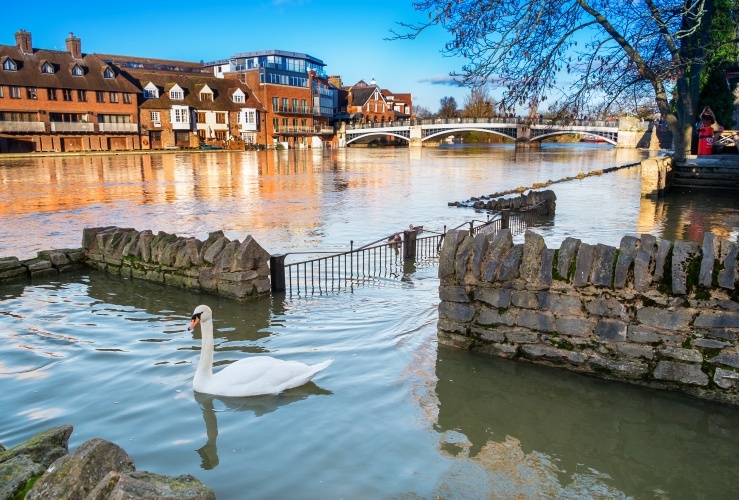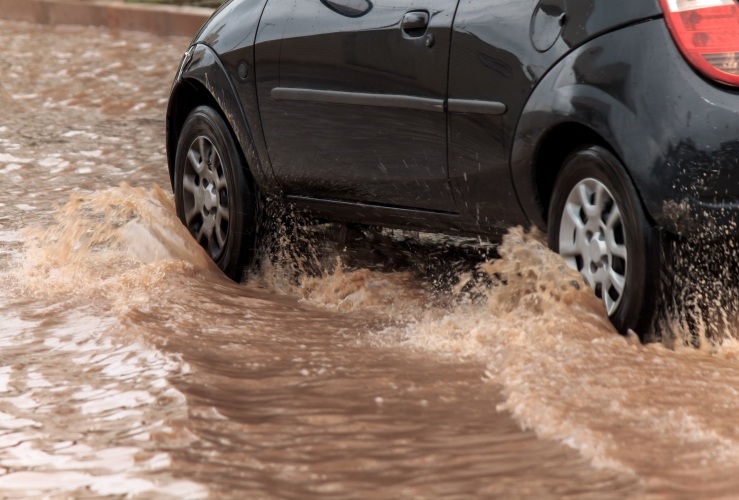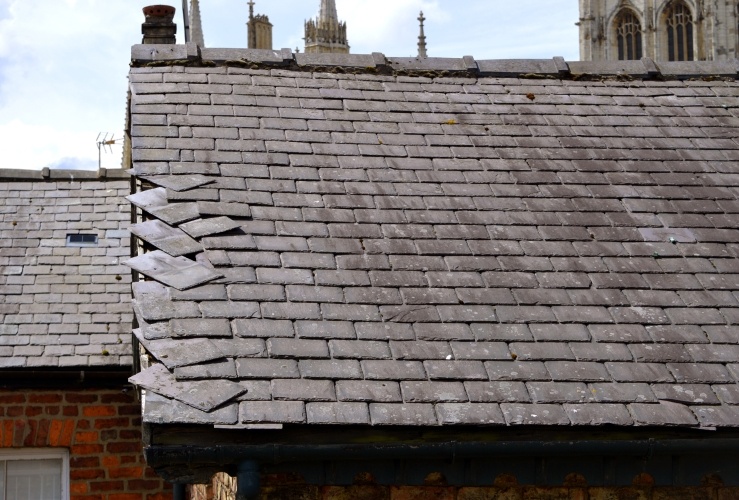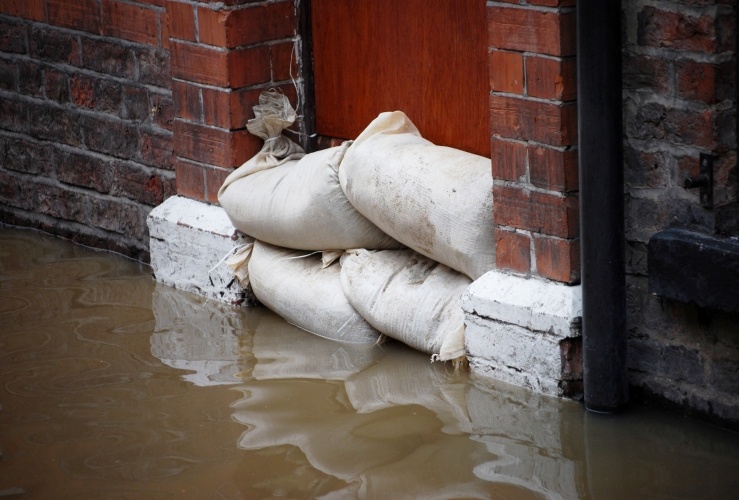
Flood in Windsor, Berkshire (xlucie-langx/Bigstock.com)
Storms and floods affect millions of people in the UK each year, often putting property – and sometimes lives – at risk. While these extreme weather events cannot be prevented, much can be done to minimise the risks to people and property.
Between 1962 and 1995, 184 people lost their lives as a result of building failures in the UK, most of which were domestic properties. In addition, storm damage costs around £300m annually.1
What to do…
- Tie down or otherwise secure any loose items that might damage windows in a storm. Ladders, outdoor furniture and garden tools are just some of the objects that may pose a risk.
- Ensure windows and doors are securely closed, especially on the windward side of the property. Garage and other large doors should be securely shut.
- If you have a garage available, park your car inside. If you don’t, ensure your vehicle is positioned away from buildings, trees, telegraph poles, fences, and walls.
- Tall and/or structurally unsound chimneys may pose a risk; if any beds are located in the area immediately around the stack, move them to a safe location.
During:
- Avoid going outdoors.
- If you do need to go out, try not to use buildings, walls or trees as shelter.
- If they collapse, walls and fences will do so on the sheltered side.
- Do not attempt any repairs while the storm is still taking place.
- Enter/exit your property via doors on the sheltered side – if possible.
- Minimise opening internal doors, and ensure they are closed straight away.
- Driving: avoid exposed roads and bridges. Be aware of side winds and avoid towing. Those in high-sided vehicles should take extra care. If you can, postpone any road journeys until the storm is over.

After:
- Do not touch any downed/damaged telephone/electrical cables.
- Avoid walking too close to buildings, walls and trees as they may have been damaged and could collapse.
- Call in on any elderly or vulnerable neighbours/relatives and ensure they are safe. Help with organising any repairs.

Preparing for flooding
- Find out if your area is at risk of flooding by visiting Floodline.
- Keep updated with TV and radio weather reports.
- Tell any vulnerable neighbours about any flood risk.
- Put together an emergency kit with important numbers, first aid items, water and a torch.
- View a list of emergency contact numbers here.
- Organise items for evacuation: medication, toiletries, clothing, and children’s items.
- Buy empty sandbags from hardware shops. Be aware these may sell out as news of the flood risk spreads.
- Remove food from fridges and freezers, and leave the doors open.
- If possible park any vehicles in locations likely to be above the flood line.
- Take photos of items to support any later insurance claim.
- Turn off water and mains power; collect mobiles and their chargers.
- Place sandbags in toilet bowls to stop any back-flow of sewage.
- Lock shut windows and doors and retrieve all pets.

During:
- Stay in a safe place.
- Avoid floodwater – whether walking or driving. Just a few inches can knock a person off their feet; while two feet of water can float a car.
- Try not to come into contact with floodwater, it may well be contaminated with sewage. Wash hands thoroughly if you've been exposed to floodwater.
- Keep children away from floodwater.
- If you are supported by social services you should be contacted by them to ensure you are safe.
- Where to go if you need to leave your home: your council will provide accommodation in the form of a rest centre or other shelter.
After:
- Do not use gas or electrical items until they have been deemed safe.
- Throw away any food that may have been in contact with floodwater.
Flood risks that may not be related to the weather.
Flooding can also affect properties if a drain or pipe has been blocked, or if a pipe has burst. If you have Home Emergency Insurance you may benefit from 24 hour call-out and repairs up to a certain limit.
Coming soon...
Home Emergency Insurance from startrescue.co.uk
Startrescue.co.uk provides Home Emergency Insurance to people across the UK. Alongside cover for flood risks associated with damaged/blocked drains and pipes, our cover also protects against pest infestations, boiler breakdowns and many other events.
1 Source Windstorms: The Facts - report for ABI 2000




